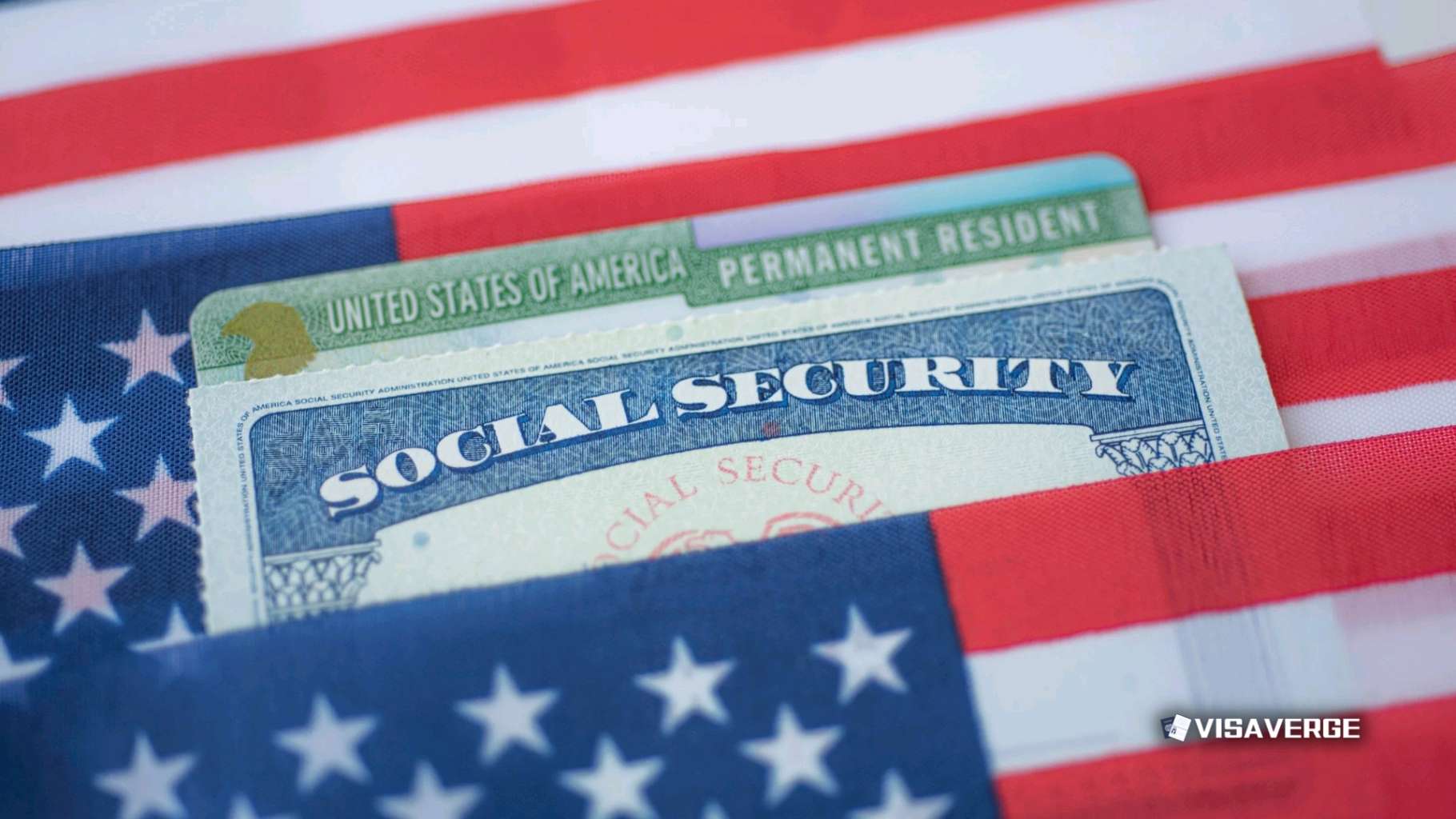U.S. immigration officials are weighing a sweeping new rule that would let the government deny green cards to people seen as likely to use basic safety‑net programs such as Medicaid and SNAP (food stamps), in a move critics say amounts to a major expansion of the long‑standing public charge test without a new law from Congress.
The proposal, unveiled by the Department of Homeland Security (DHS) in November 2025 under President Trump, would broaden who can be labeled a public charge, a term in immigration law used for more than a century to deny entry or permanent residency to people deemed likely to depend on government support. For the first time on this scale, the rule would weigh possible future use of a wide list of non‑cash benefits, including Medicaid, SNAP (food stamps), Medicare, the Children’s Health Insurance Program (CHIP), Affordable Care Act health plans, and Head Start.

What the draft regulation would do
Under the draft regulation:
- Immigration officers could treat likely use of the above benefits as a strong negative factor when deciding whether to approve an application for permanent residency or another status.
- The policy would apply to both:
- New applicants abroad, and
- People already in the United States seeking to adjust status, including some asylum seekers and humanitarian parolees.
This reach goes well beyond earlier interpretations that focused mainly on cash welfare and long‑term institutional care.
Government rationale
Officials argue the change is needed to protect taxpayer funds and to avoid situations where immigrants become “dependent on government assistance.”
Supporters inside the administration frame the move as a way to ensure new residents can support themselves and their families without heavy use of social programs designed mainly for U.S. citizens.
Critics’ concerns
Immigration lawyers, health‑care groups, and local officials warn that the proposal would sharply reshape who can get a green card, despite the fact that no law has been passed that automatically denies permanent residency based on likely use of public benefits.
Key criticisms:
- The public charge test has historically involved judgment calls by individual officers; the new rule would give officers far broader discretion.
- Officers would be encouraged to treat low income and potential benefit use as negative indicators.
- That discretion could disproportionately affect:
- Low‑income families
- Older immigrants
- People with disabilities
- Those without strong positive factors such as higher education, stable employment, or a substantial financial sponsor
Analysis and likely impacts
According to analysis by VisaVerge.com, the rule would not create a blanket ban on applicants who have used or may use Medicaid or SNAP. It would, however, encourage officers to view such use as evidence that a person is likely to become a public charge in the future.
Possible consequences include:
- Harder paths to permanent residency for vulnerable populations
- Greater emphasis on applicants’ past and potential use of non‑cash benefits
- Increased weight given to economic and educational positives in adjudications
Broader policy context and chilling effects
The proposed regulation arrives amid broader shifts in federal benefit rules for non‑citizens. Advocates report that many lawful immigrants who previously qualified for programs like Medicaid, Medicare, SNAP, ACA health plans, CHIP, or Head Start are being told they may lose access or face new eligibility checks.
Affected groups include:
- Refugees
- Asylees
- Trafficking survivors
- Holders of Temporary Protected Status (TPS)
Community providers report real‑world impacts:
- Clinics and food pantries in several states describe families canceling health appointments or refusing to renew SNAP benefits out of fear.
- Legal services directors report parents removing U.S. citizen children from Medicaid because they believe it could hurt parents’ future green card cases.
The “chilling effect” is occurring even though the rule is only a proposal and not yet final.
Administrative process and legal challenges
DHS has opened a public comment period, as required under federal administrative law. During this stage:
- Advocacy groups, state governments, and private citizens can submit written comments challenging the rule’s legal basis or describing likely impacts.
- After reviewing comments, DHS could:
- Revise the language,
- Finalize the rule, or
- Abandon the proposal.
Civil rights and immigrant‑rights organizations are preparing lawsuits, arguing the plan conflicts with long‑standing congressional intent and will push families deeper into poverty.
Past precedent:
- Federal judges have previously blocked similar expansions of the public charge concept, forcing the government to narrow or suspend its approach.
- Legal scholars predict another likely long court battle if DHS finalizes a rule similar to the November 2025 proposal.
Interaction with other information‑sharing policies
The proposal would intersect with other measures that increase data sharing:
- The IRS can now share certain tax data of immigrants with Immigration and Customs Enforcement (ICE).
- Attorneys warn this raises stakes for people who:
- Work without full authorization, or
- Rely on tax credits tied to low income
Such records could reach enforcement agencies while officers treat benefit use more harshly under the public charge test.
Impact on employers and skilled workers
Business groups and employers sponsoring workers for permanent residency are concerned:
- Potential for longer adjudication times and more denials
- Officers might focus on an applicant’s future likelihood of using benefits instead of the job offer or skills
- Workers with chronic health conditions could face tougher scrutiny because they are more likely to use Medicaid or subsidized health plans
Current status and guidance
For now, DHS emphasizes the proposal has not taken effect and existing rules remain in place while the agency reviews public comments.
Legal advocates advise:
- Seek individual legal advice before dropping benefits, since giving up Medicaid or SNAP can have serious health and economic consequences and may not improve the outcome of a future immigration case.
Official information on current policy is available on the DHS and U.S. Citizenship and Immigration Services websites, including a dedicated public charge page on https://www.uscis.gov/green-card/green-card-processes-and-procedures/public-charge and the Department of Homeland Security website on DHS.
Longer‑term outlook
Policy analysts note several important dynamics:
- Any final rule could be reversed or altered by a future administration because the public charge test is defined through agency regulations, not detailed statutory language.
- This leads to ongoing uncertainty for long‑term residents and mixed‑status households, who must balance immediate medical and food needs against potential immigration consequences.
Key takeaway:
There is no automatic bar in U.S. law that says a person who might someday need Medicaid or SNAP (food stamps) can never get a green card, but the government is moving to weigh these factors much more heavily. Whether the courts allow that shift, and how strictly officers apply it, will determine how far the public charge label reaches into the lives of millions of immigrants.
If you want, I can:
– Summarize the rule’s positive and negative factors in a table,
– Draft a template public comment you could submit to DHS, or
– List trusted legal aid resources to contact in different states.
This Article in a Nutshell
The DHS proposal from November 2025 would expand the public charge test to consider likely future use of non‑cash benefits like Medicaid, SNAP, Medicare, CHIP, ACA plans and Head Start. It would affect new applicants abroad and those adjusting status in the U.S., giving officers broader discretion to treat benefit use as a strong negative factor. Critics warn of chilling effects that deter necessary health and food aid, disproportionate impacts on vulnerable groups, and anticipated legal challenges during the DHS public comment period.













